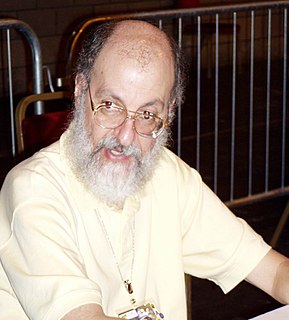A Quote by Dinaw Mengestu
I tend to write longer narrative pieces after I've finished writing a novel - when the fiction's finished and put away, and I have a chance to take all the ideas that are buried inside of my novels and work with them directly.
Related Quotes
I was writing novels at eight. It was a science fiction epic, which went by the unimprovable title of 'Another Kind of Warrior.' I'd write it beginning to end, but when I'd finished it, I was another year older. The quality of writing and thought changed radically, so I'd start it again. I re-wrote that same book until I was 16.
The main characters for 'The Seer and the Sword' made an appearance one night and then haunted me for over five years before I began to write them down. Does that count as inspiration? For me, characters tend to show up, stay on to help with the work of writing their stories, and then occasionally deign to visit after a book is finished.
Why do I like to write short stories? Well, I certainly didn't intend to. I was going to write a novel. And still! I still come up with ideas for novels. And I even start novels. But something happens to them. They break up. I look at what I really want to do with the material, and it never turns out to be a novel.
I started seriously applying myself to writing fiction immediately after I finished graduate school. By 'seriously,' I mean that, instead of noodling along on a story, finishing it or not as the mood struck me, I set out to complete what I started, to polish it to the best of my ability, and to send out the finished story.
The writing of a novel is taking life as it already exists, not to report it but to make an object, toward the end that the finished work might contain this life inside it and offer it to the reader. The essence will not be, of course, the same thing as the raw material; it is not even of the same family of things. The novel is something that never was before and will not be again.
When you're writing a novel, you spend four years sitting in your basement and a year waiting for the book to come out and then you get the feedback. When you do work online, the moment you're finished making it, people start responding to it which is really fun and allows for a kind of community development you just can't have in novels.
There's no really other way to learn writing than by writing. So accelerate that as much as you can. The more you write, the better you'll get. What also helps, though, is walking away from broken stuff. Not everything's going to work. Killing two years of your life trying to resuscitate a dying novel, I don't know. Why not just write a different one? You'll have more ideas. You can't help having ideas.
If you interrupt the writing of fast narrative with too much introspection and self-criticism, you will be lucky if you write 500 words a day and you will be disgusted with them into the bargain. By following my formula, you write 2,000 words a day and you aren’t disgusted with them until the book is finished, which will be in about six weeks.







































